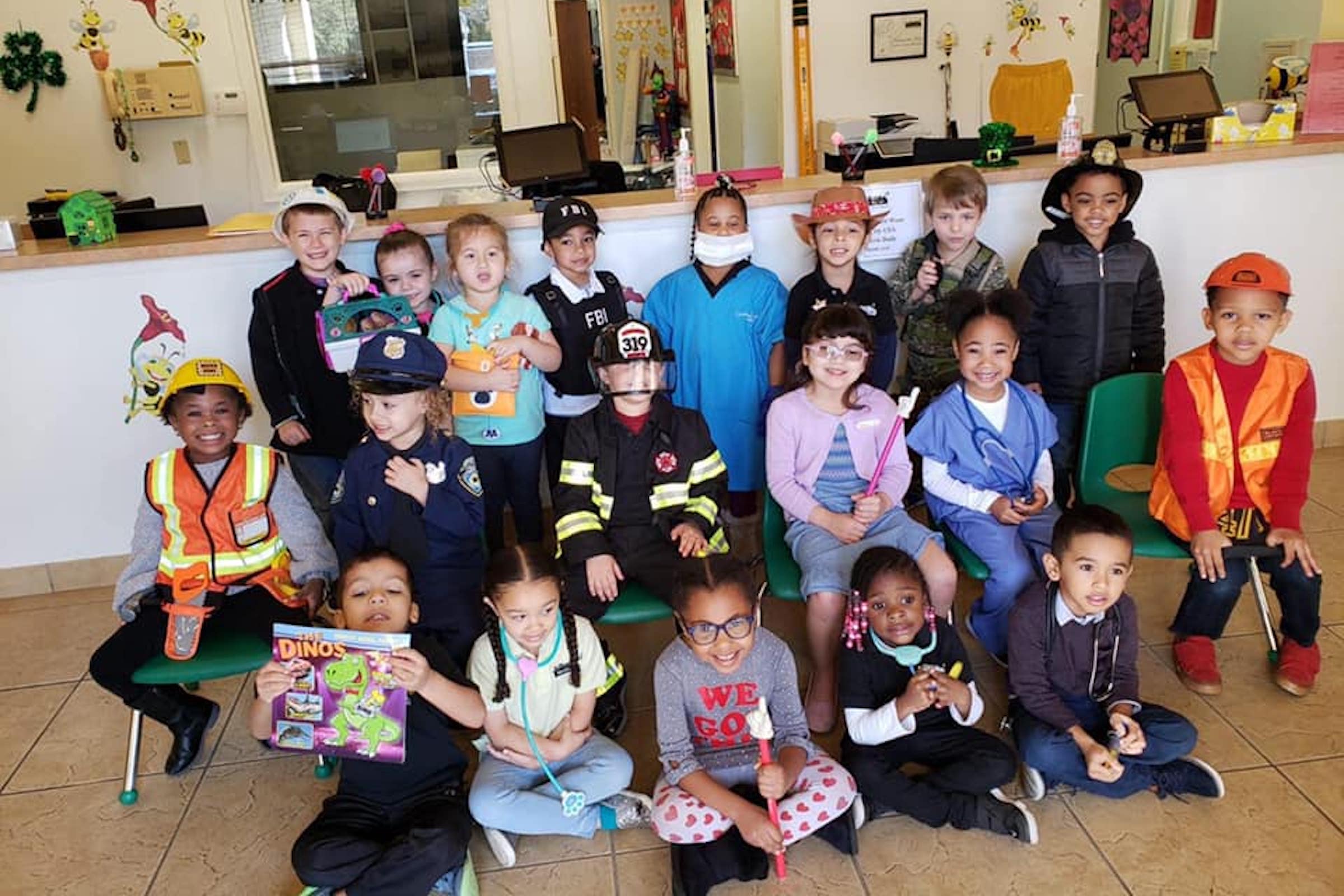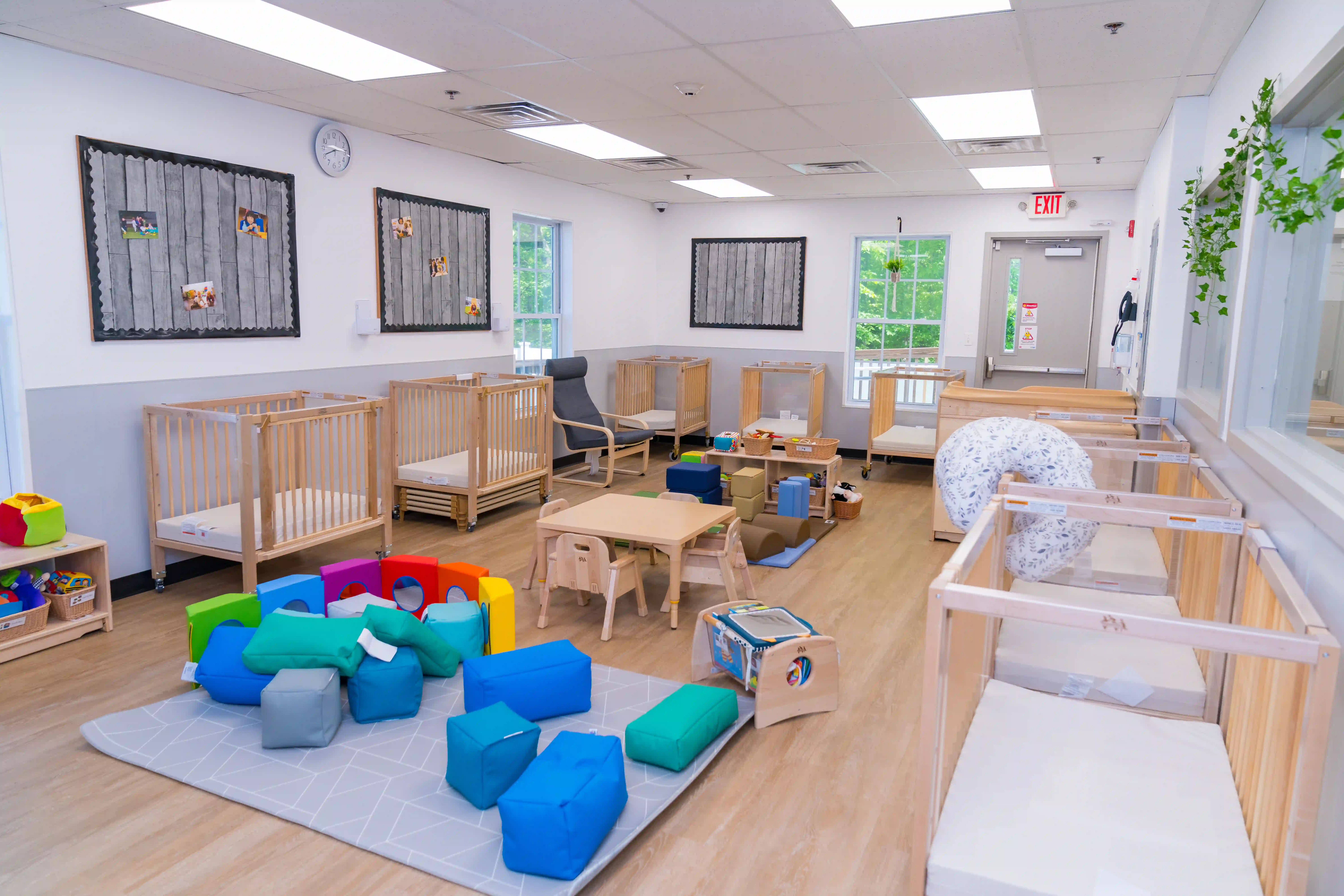Essential Questions To Ask When Evaluating Child Care Near Me
Wiki Article
The Duty of DAYCARE in Fostering Social Skills and Early Understanding
Day care acts as a considerable atmosphere for kids, promoting vital social communications that promote early knowing. In this organized setting, kids engage with caregivers and peers, establishing vital interaction and cooperation abilities. As they browse play and different tasks, they find out to solve problems and develop psychological knowledge. Understanding the subtleties of these interactions discloses the extensive influence childcare has on a kid's development, shaping their future partnerships and academic preparedness. What specific abilities do children acquire in this setup?The Value of Social Interaction in Childcare
While numerous parents recognize the value of early childhood years education, the function of social communication in childcare is typically taken too lightly. Day care settings offer children with vital possibilities to engage with peers, promoting vital social skills. Throughout these developmental years, children learn to navigate different social dynamics, such as sharing, teamwork, and conflict resolution. Engaging with varied age teams and individualities enhances their ability to adjust to different environments and establish compassion in the direction of others.
Structure Communication Skills Through Play
Play acts as a powerful medium for children to develop crucial communication abilities in childcare settings. With different play tasks, youngsters involve in conversations, express their ideas, and find out to listen to others. Parlor games, for circumstances, urge them to make use of language in different contexts, advertising vocabulary expansion and understanding of social hints.
Storytelling throughout play allows kids to convey ideas and emotions, assisting them establish narrative skills and confidence in their spoken expressions. In general, play not only functions as a pleasurable activity yet likewise as an essential system for creating the communication skills essential for successful social communications in later life.
Urging Teamwork and Team Effort
Collaboration and teamwork are crucial skills that kids can grow in daycare environments. With various group activities, such as constructing projects or collective games, youngsters discover to share duties and job toward typical goals. These interactions foster an understanding of the importance of listening to others, working out functions, and jeopardizing when needed.In childcare setups, caregivers often develop opportunities for youngsters to involve in synergy by encouraging them to take part in team jobs. This not only aids children create social bonds however also cultivates a sense of belonging and community.
As they navigate these participating experiences, children obtain valuable insights into the dynamics of dealing with peers. They find out to appreciate varied point of views and identify that each participant contributes distinctively to the team effort. Eventually, these early lessons in participation and teamwork lay the groundwork for much healthier relationships and reliable cooperation in future social and academic settings.
Structured Learning Activities and Cognitive Development
Structured discovering tasks play an important function in promoting cognitive growth in children (Child Care Center). These tasks, that include problems, storytelling, and hands-on experiments, stimulate important thinking and analytical abilities. In a childcare setting, organized learning encourages kids to engage with their peers, enhancing their capability to process information and understand different principles
Through directed play and interactive tasks, youngsters establish foundational skills such as numeracy and proficiency. For example, activities focused around numbers can help children realize mathematical principles, while storytelling enhances language purchase and comprehension. Additionally, structured discovering allows teachers to examine developing progress and tailor tasks to specific understanding requirements.

Incorporating a diverse series of structured tasks not only advertises cognitive development but also prepares youngsters for future scholastic success. By giving a balanced atmosphere that cultivates expedition and query, day care programs play a necessary duty in forming the cognitive abilities of young learners.
Cultivating Psychological Intelligence and Confidence
Emotional knowledge and confidence are important elements of a kid's development, enhancing the cognitive abilities cultivated via structured discovering activities. In daycare settings, kids are offered with opportunities to express their emotions and engage in social interactions, which are crucial for developing emotional awareness. With led play and team activities, youngsters discover to determine their feelings, recognize those of others, and create compassion.Interaction with caretakers and peers helps to cultivate self-esteem and strength. Positive support and motivation from adults equip children to take dangers and face difficulties, fostering a sense of achievement. As they navigate social dynamics, children develop confidence in their abilities to connect, work together, and fix disputes - Daycare North York. This nurturing atmosphere enables the progressive advancement of psychological knowledge, which is important for future social relationships and overall wellness. As an outcome, day care plays a significant duty in cultivating both emotional knowledge and confidence in children
Often Asked Concerns
How Can Moms And Dads Pick the Right Daycare for Their Kid?
Parents need to think about factors such as location, personnel qualifications, safety and security standards, curriculum, and reviews from various other moms and dads when choosing the best day care for their child, ensuring it straightens with their child's developmental requirements and household worths.
What Age Is Ideal for Starting Daycare?

Exactly How Does Childcare Effect Kid's Habits at Home?
Childcare commonly positively influences youngsters's habits in your home by boosting social abilities, advertising self-reliance, and motivating psychological guideline (Child Care Center). Therefore, children might exhibit better interaction and cooperation, leading to even more unified family members dynamicsExist Any Type Of Downsides to Day Care Presence?
Yes, there are disadvantages to childcare presence, consisting of prospective splitting up anxiousness, direct exposure to health problems, and Child Care Near Me irregular caregiving. These factors can impact a child's psychological well-being and modification in the house, affecting total family members dynamics.How Can Parents Support Social Skills Found Out at Daycare?
Parents can support social abilities discovered at childcare by facilitating playdates, urging participating activities, modeling favorable communications, discussing feelings, and strengthening sharing and interaction at home, consequently enhancing their youngster's social growth and self-confidence.Day care serves as a significant environment for young kids, helping with essential social interactions that promote early knowing. Daycare setups supply youngsters with indispensable possibilities to involve with peers, fostering essential social skills. Play offers as an effective medium for children to develop essential interaction abilities in childcare settings. In childcare settings, youngsters are given with opportunities to reveal their emotions and involve in social communications, which are essential for developing emotional understanding. Daycare often positively influences children's actions at home by boosting social abilities, advertising independence, and motivating psychological regulation.
Report this wiki page